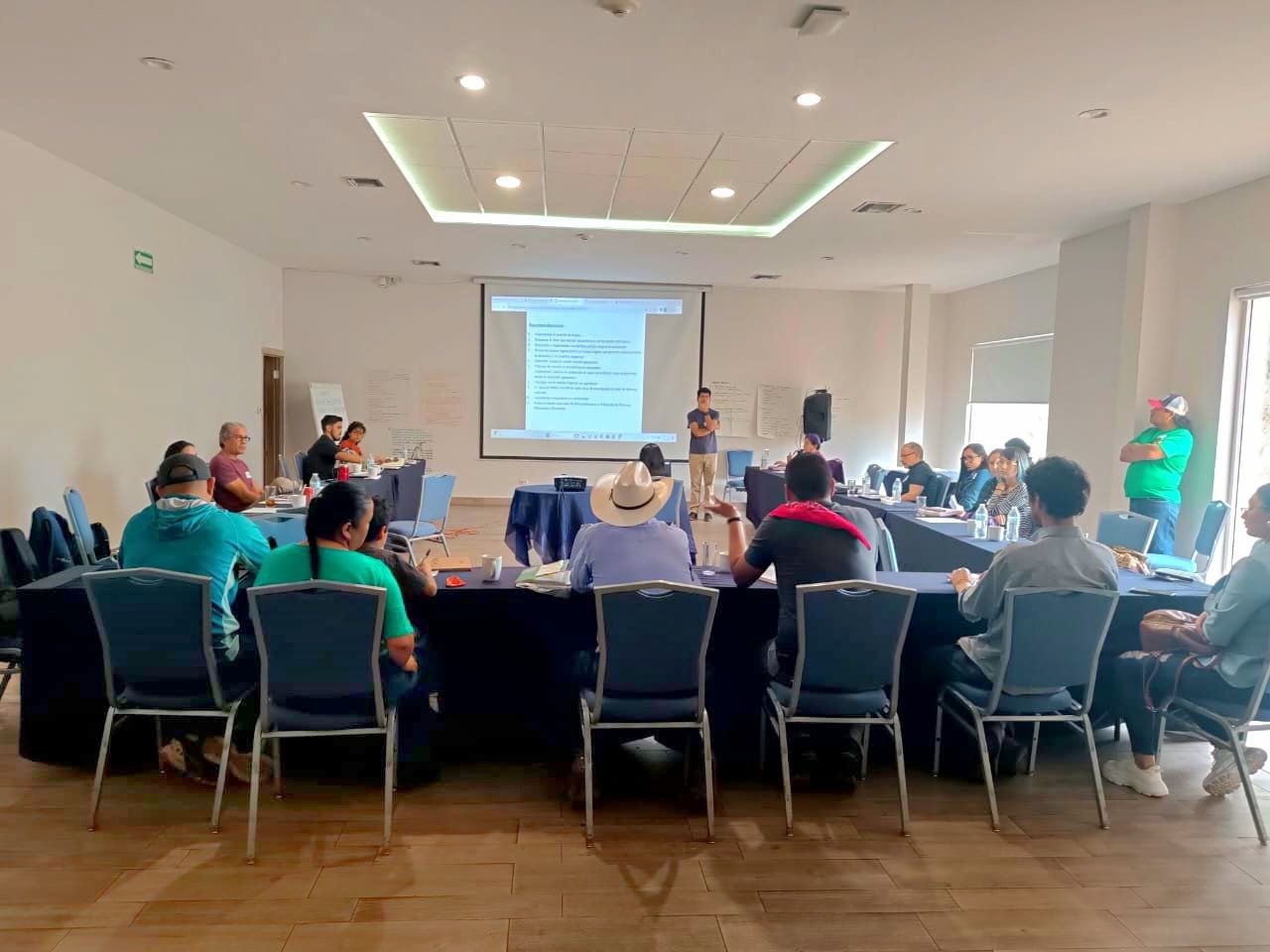Weaving Protection Networks in Mexico, One of the World's Most Dangerous Countries for Environmental Defenders
Being an environmental activist or advocate in Mexico is a high-risk activity that cannot be overlooked. In the photo, recent protests in Hermosillo, Mexico, against the construction of the train that would endanger the ecosystem of the Cocóspera River.
In response to a harsh reality in Mexico, where environmental defenders face violence, harassment, and criminalization for protecting their land and the environment, we joined human rights organizations ProDESC and Creatura to address the urgency of security. A recent Regional Workshop on Comprehensive Security brought together 30 participants from various organizations and communities, providing essential tools and weaving support networks among environmental defenders.
Mexico is one of the three most dangerous countries for environmental defenders globally. According to the Mexican Center for Environmental Law (CEMDA), in 2022, 24 people were killed due to their environmental defense work, with a total of 582 recorded incidents, including intimidation, harassment, threats, and physical assaults, marking the highest figure since CEMDA began its registry in 2014.
In the most recent report by Global Witness, the alarming numbers of murders of environmental defenders worldwide are sadly highlighted, with Latin America ranking highest, and Mexico among the three most dangerous countries globally for defending the environment. Source: Global Witness Report, updated as of September, 2023.
Given this scenario, it is more crucial than ever for individuals, collectives, organizations, and communities defending the environment in Mexico to have technical and legal tools for comprehensive security.
"Security should be considered a minimum condition for the defense of environmental rights, and Wildlands Network, as an organization working in an especially vulnerable region, must be involved in this conversation," says Carlos Castillo, co-director of the Northwest Program in Mexico.
The safety workshop was a space to exchange experiences and tools for self-care and caring for others.
A step in that direction was the first Regional Workshop on Comprehensive Security, held on November 17 in Hermosillo, Sonora. This workshop was an initiative of the "Protecting People, Protecting Nature" program by human rights organization ProDESC, in collaboration with Wildlands Network and the consultancy group Creatura.
The workshop provided an opportunity for 30 participants from 20 civil society organizations, groups, ejidos, and indigenous communities defending land, territory, and the environment to acquire tools and training to develop a comprehensive security plan within their groups. It also familiarized them with rapid response mechanisms to security threats, raised awareness about the need for self-care and caring for others in environmental defense, and facilitated the exchange of experiences.
"A first step for all participants was to recognize ourselves as environmental defenders and, from there, become aware that we must take care of ourselves and not minimize security," explains Mirna Manteca, co-director of the Northwest Program in Mexico at Wildlands Network.
At the workshop, participants exchanged experiences on the subject of security and the risks of environmental advocacy.
The gathering is just the beginning. According to Mirna, "We leave this workshop with the idea of strengthening networks with environmental defenders in the region, staying in constant contact, supporting each other, and sharing tools and everything we learned with the most vulnerable groups and individuals: those working in the field and those who daily put their bodies on the line to defend their land and the environment.”





